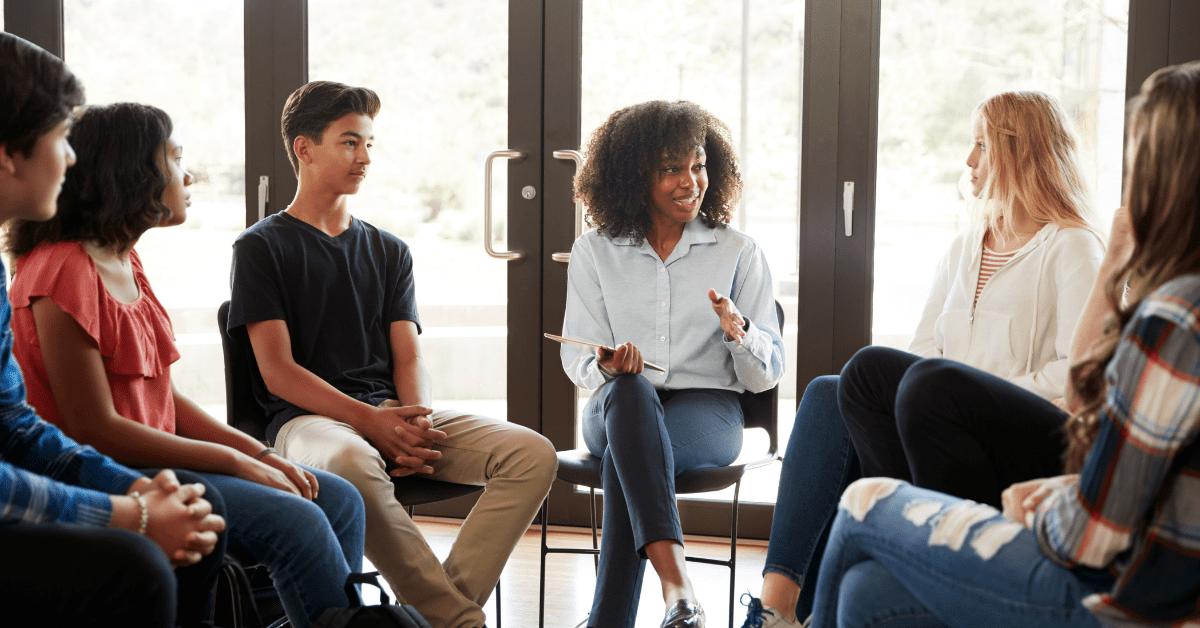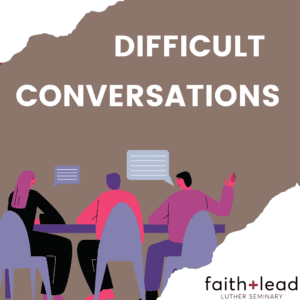The day after the election of 2016, when Donald Trump was elected as President of the United States, reactions in our area ranged from a curious acceptance of someone who could possibly shake things up in the national government to a gut feeling of fear that we could be headed in the wrong direction as a country. Contrary to the perceived polarization of our country, our church participants represented a large range of various political opinions and reactions because of our location.
Our congregation is located in a small town of 2,000 in rural Nebraska, but we are keenly aware of other cultures and races as we are only twenty-five miles from the nearest city where many refugees and immigrants have settled. Whereas we are not a bedroom community, we are both a town of residents who are employed locally and those who commute to the city for work. Our experiences, interactions, and beliefs are diverse when it comes to difficult conversations such as politics, especially during such a contentious campaign filled with negativity.
Prior to the election in 2016, our congregation had done a lot of intentional work to strengthen our connections, as well as discuss how our faith intersects with our civic responsibilities. Miroslav Volf and Ryan McAnnally-Linz provided a backdrop for two discussion groups based on their book Public Faith in Action: How to Think Carefully, Engage Wisely, and Vote with Integrity. Key concepts of our commitments in Christ, our convictions in areas of education, poverty, and migration, and our character focused on courage and humility of those who follow Christ were central to all our discussions. Yet when the election results were in, there was a sense of uncertainty even for those of us who had prepared in discussions.
This uncertainty led us to hold an adult forum the Sunday after the election, which we called “Meet Me in the Middle.” Our state senator and mayor, who are both Republicans, and I, who am a Democrat, shared openly about our political affiliations and why we felt called to meet one another in the middle. We asked those in attendance to consider how we could meet one another in the middle with all our diversity in political convictions and opinions. Small groups spent time together, as our goal focused on meaningful conversations rather than meaningless conversations.
Meaningful conversations
• How we naturally self-organize to think together: gathering together in circle, listening to one another, and sharing about possibilities rather than problems
• Ignites innovation
• Discovering together what we care about
• All are equals in connecting despite age, experience, gender, etc.
• Being attentive without judgment
• Open-ended questions and other questions that ignite creativeness
• Not necessarily neat thoughts, clear categories, but grassroots
Meaningless conversations
• Filled with polarities—your way vs. my way, left wing vs. right wing, Republican vs. Democratic, etc.
• Carries along our sense of “overwhelmness”
• Brings easy disappointment
• Lack of trust for one another
• Cynicalness
• Lack of commitment to one another
• Others dominate the conversation
• Problem focused
The Holy Spirit truly entered these meaningful conversations drawing many to meet in the middle in the difficult conversations around politics. Perhaps the most powerful moment occurred when an intersection of opposites occurred. One woman at one table cried holding Kleenex as she shared how her Muslim students from the school where she teaches in the city were so afraid for their lives that their parents did not allow the girls to wear their hijabs. One man at another table shared, “I don’t understand the fear, but that is why I am here.” These two were encouraged to combine together between their tables, and an intersection of the Holy Spirit brought forth understanding. The Holy Spirit took the middle ground we created and made it holy ground, where trust, respect, care, understanding, and love dominated. We left that forum still with our diverse opinions and convictions across the spectrum, but we left held together by the Holy Spirit.
Held together by the Holy Spirit is where we will enter our Lenten season now almost six years later in the midst of the global pandemic, increased political division, and international tensions. We will meet again in the middle at Dinner Church with all ages represented, at the request of our confirmation students’ parents, to talk about loving our neighbor who has a different skin color, sexuality, ethnicity, faith, and yes—political affiliation. We will meet in the middle, trusting in the Holy Spirit again, that we will be held together in respect, care, understanding and love because of Jesus Christ who went to the cross to defeat all that separates us from God and one another.
Your turn:
- What does the middle of your congregation look like?
- What foundation of faith is already a part of your life together that can be reinforced so that such a conversation can happen?
- How can meaningful conversations reshape your way of life together if your congregation has struggled in meaningless conversations during these last two years?
- With whom can you begin to shape the middle for others to meet together?




